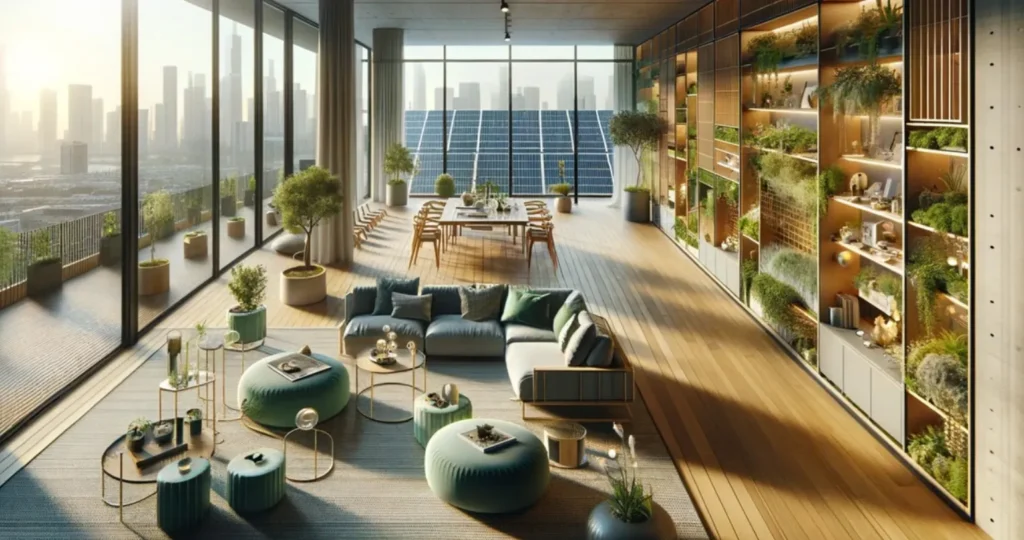Last updated on July 20th, 2025 at 04:22 am
Introduction
In a world increasingly attuned to the environmental impact of consumerism, the concept of eco-luxury has emerged as a compelling fusion of opulence and sustainability. No longer is luxury synonymous with excess and waste; today, a new generation of affluent consumers is seeking meaningful, environmentally responsible ways to indulge in high-end living. Eco-luxury is not merely a trend—it’s a transformative movement reshaping architecture, fashion, travel, and lifestyle through the lens of environmental stewardship and ethical values.
What is Eco-Luxury?
Eco-luxury, or sustainable luxury, refers to high-end goods, services, and experiences that are crafted with environmental and social responsibility at their core. This may include sustainably sourced materials, ethical labor practices, energy-efficient manufacturing, and carbon-neutral logistics. The philosophy of eco-luxury maintains that sustainability and indulgence are not mutually exclusive; in fact, they can enhance one another. From zero-energy mansions to eco-resorts and designer fashion made from recycled fibers, eco-luxury presents a conscious evolution of what it means to live lavishly.
Driving Forces Behind the Movement
Several factors are propelling the eco-luxury movement forward:
- Consumer Awareness and Demand
Today’s consumers—especially Millennials and Gen Z—are more informed and socially conscious. They are using their purchasing power to support brands that align with their values. A Nielsen report found that 73% of global consumers would change their consumption habits to reduce their environmental impact. - Climate Crisis and Ethical Responsibility
As climate change becomes a growing concern, industries are under increasing pressure to reduce their carbon footprints. Luxury brands are responding by innovating more sustainable practices, viewing environmental responsibility not as a compromise but as an opportunity to redefine quality and craftsmanship. - Technological Advancements
Innovations in green technology are making sustainable options more accessible. From solar panels and smart home systems in luxury residences to biodegradable textiles and cruelty-free cosmetics, high-end sustainability is now technologically feasible and increasingly stylish.
Sustainable Architecture and Interior Design
One of the most visible expressions of eco-luxury is in architecture and home design. Elite properties are increasingly incorporating LEED certifications, passive house standards, and off-grid energy systems. Architects blend natural materials like bamboo, reclaimed wood, and recycled metals with cutting-edge green tech to create homes that are both luxurious and low-impact.
Interior designers are also embracing sustainability through eco-conscious furnishings, non-toxic paints, organic fabrics, and artisanal craftsmanship that emphasizes durability over disposability. Custom-made, locally sourced furniture not only supports smaller economies but also reduces the environmental toll of mass production and shipping.
Eco-Luxury in Fashion
The fashion industry, long criticized for its environmental toll, is undergoing a green transformation. High-end designers like Stella McCartney, Gabriela Hearst, and brands like Gucci and Prada have committed to using sustainable materials and reducing waste. Organic cotton, mushroom leather, recycled plastics, and regenerative wool are redefining haute couture.
Moreover, luxury resale and circular fashion are gaining momentum. Platforms like The RealReal and Vestiaire Collective are not only promoting sustainability but also adding prestige to pre-owned items, reinforcing that true luxury is timeless and responsible.
Eco-Conscious Travel and Hospitality
Eco-luxury has revolutionized the travel and hospitality industry. Discerning travelers are seeking experiences that combine comfort with conscience. Leading this change are eco-resorts, safari lodges, and private retreats built with sustainable materials, powered by renewable energy, and integrated into local ecosystems.
Destinations like the Six Senses resorts, Soneva Fushi in the Maldives, and Lapa Rios in Costa Rica offer 5-star experiences with minimal ecological impact. Luxury travel operators are also offering carbon-offset programs, conservation-focused itineraries, and cultural immersion that benefit local communities.
Sustainable Fine Dining
Eco-luxury extends to gastronomy, where farm-to-table, zero-waste kitchens, and organic ingredients are defining the new high-end dining experience. Celebrity chefs and Michelin-starred restaurants are sourcing locally, composting waste, and even growing their own ingredients.
Fine dining is now an avenue for promoting biodiversity and sustainability. Restaurants like Noma (Denmark) and Blue Hill at Stone Barns (USA) are creating seasonal, sustainable menus that celebrate local agriculture and food systems.
Ethical Investment and Lifestyle
High-net-worth individuals are increasingly aligning their wealth with their values through impact investing and green portfolios. Sustainable real estate, electric vehicle (EV) fleets, art created from recycled materials, and zero-waste beauty regimes reflect a shift toward conscious consumption at the upper echelon.
Luxury car makers such as Tesla, Porsche, and Bentley are investing in electric models that maintain prestige while reducing emissions. Meanwhile, exclusive beauty brands are moving toward refillable packaging, vegan ingredients, and cruelty-free testing as eco-consciousness becomes a non-negotiable for elite clientele.
Challenges and Criticisms
Despite its promise, eco-luxury faces challenges. Critics argue that the term may become a marketing gimmick—greenwashing—if not backed by genuine practices. The price premium on sustainable goods can also alienate average consumers, perpetuating the notion that sustainability is a luxury rather than a necessity.
Furthermore, the carbon footprint of luxury itself—such as private jets and exclusive yacht ownership—poses contradictions that brands must address to maintain credibility. Transparency, accountability, and third-party certifications are essential to ensuring that eco-luxury remains authentic.
The Future of Sustainable High-End Living
Eco-luxury is poised to become the new benchmark for aspirational living. As technology advances, regulations tighten, and consumer values evolve, the convergence of sustainability and luxury will only deepen. Smart cities, 3D-printed green homes, AI-optimized energy use, and regenerative travel models are already shaping this future.
What once seemed paradoxical—eco-conscious indulgence—is now emerging as the gold standard. In this redefined landscape, the most luxurious lifestyle is not the most wasteful but the most responsible.
Conclusion
Eco-luxury represents a powerful shift in how we define wealth, success, and desirability. It is no longer enough for products and experiences to be rare and expensive—they must also be ethical, sustainable, and positively impactful. As consumers continue to demand integrity from brands and as industries respond with innovation, eco-luxury will not only thrive—it will lead the way toward a more balanced, beautiful, and sustainable world.

